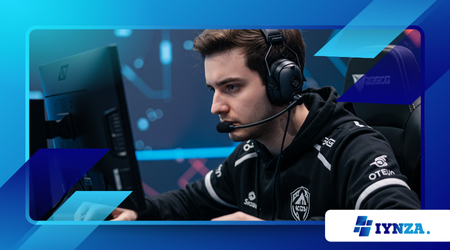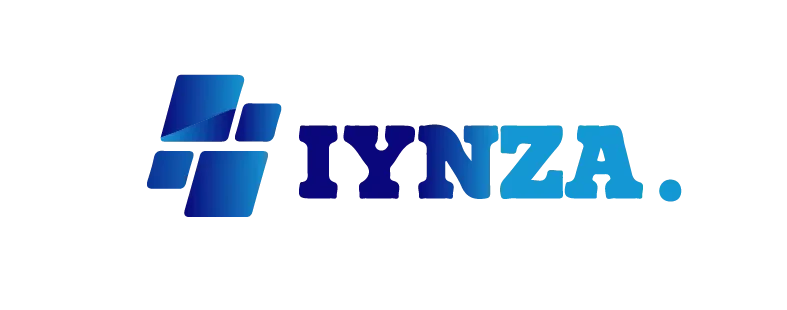Cómo entrenar como un jugador profesional de deportes electrónicos

¿Quieres entrenar como un jugador profesional de deportes electrónicos?
Anuncios
Para competir al más alto nivel en los videojuegos, el talento innato no basta. Los jugadores profesionales de esports ascienden en la clasificación no solo por ser buenos en los juegos, sino porque entrenan con propósito, estructura e intensidad.
Saber cómo entrenar como un jugador profesional de deportes electrónicos significa aprender a abordar cada sesión como un atleta, no como un aficionado.
En esta guía detallada, desglosaremos un régimen de entrenamiento completo: desde ejercicios mecánicos y entrenamiento en equipo hasta salud física, preparación mental e incluso rutinas de recuperación. Si realmente quieres mejorar, estos son los principios que te ayudarán a pasar del juego casual al dominio competitivo.
Qué significa realmente el entrenamiento en los deportes electrónicos
En los deportes tradicionales, el término "entrenamiento" evoca imágenes de largos entrenamientos, sesiones de estrategia y horarios estrictos. Los esports no son la excepción. Los mejores jugadores siguen rutinas igual de exigentes, tanto mental como físicamente.
El entrenamiento en esports implica perfeccionar los reflejos, desarrollar la intuición, analizar el rendimiento y desarrollar hábitos que fomenten la concentración, la resistencia y la comunicación. Es una combinación de repetición, reflexión y descanso.
Los jugadores profesionales no solo se esfuerzan. Entrenan con intención. Cada hora se divide en partes: calentamientos, estrategia de equipo, repaso, cola individual y más. Hay una razón por la que la élite se siente intocable: porque tratan cada partido como una práctica y cada momento como una preparación para algo más grande.
Construye una rutina diaria con propósito
La constancia es lo que distingue los picos ocasionales de una mejora duradera. El primer paso para entrenar como un jugador profesional de esports es diseñar una rutina diaria estructurada y mantenerla.
Eso significa despertarse a la misma hora, dedicar bloques de tiempo a ejercicios de habilidades y establecer objetivos concretos para cada sesión.
Para la mayoría de los profesionales, las mañanas se reservan para la mecánica: entrenamiento de puntería, ejercicios de último golpe o práctica de movimiento. Al mediodía se realizan prácticas por equipos o partidas clasificatorias. Por la tarde, se revisan vídeos bajo demanda y se trabaja en solitario para mejorar.
Tu rutina no necesita imitar esto exactamente, pero debe ser intencional, repetible y equilibrada.
Lea también: Cómo mantenerse mentalmente fuerte en los juegos competitivos
Domina la mecánica con ejercicios diarios
El tiempo de reacción, la precisión de puntería, la velocidad de movimiento y el uso de habilidades se pueden perfeccionar mediante ejercicios aislados. Al igual que un jugador de baloncesto practica tiros libres, los jugadores profesionales aíslan componentes mecánicos para superar sus límites.
Usa Aim Lab o Kovaak's para juegos FPS. Usa salas personalizadas o combates de IA en MOBA o juegos de lucha. Trabaja en la colocación de la mira, los combos de habilidades o la cancelación de animaciones. Prográmalo hasta que se vuelva automático.
El dominio de la mecánica no es ostentoso: es memoria muscular que se construye a base de aburrimiento. Los profesionales no son precisos por naturaleza. Repiten miles de comandos hasta que sus manos responden sin pensar.
Cíñete a ejercicios que te desafíen más allá de tu zona de confort. Registra tus puntuaciones. Mira las repeticiones. Ajusta tu agarre, sensibilidad o movimiento cuando sea necesario. Aquí es donde pequeños ajustes te darán resultados increíbles.
Revisar, reflexionar y corregir errores
Ver tus propias partidas es incómodo. Por eso tan pocos jugadores lo hacen. Pero los jugadores profesionales revisan las grabaciones constantemente. Así es como identifican patrones, corrigen malos hábitos y refuerzan la toma de decisiones acertadas.
Reserva tiempo a diario, o al menos semanalmente, para revisar los partidos. Míralos desde tu perspectiva y, si es posible, desde la del oponente. Presta atención a estos momentos clave:
- Decisiones tempranas del juego que dieron forma al partido
- Errores bajo presión
- Peleas perdidas y por qué sucedieron
- Mal posicionamiento o comunicación
- Tiempos de reutilización desperdiciados o recursos mal utilizados
Usa marcas de tiempo. Toma notas. Luego, aplica una solución a la vez en la siguiente sesión. Con el tiempo, dejarás de repetir errores y empezarás a reconocer los problemas antes de que ocurran.
Entrena la mente tan duro como las manos
La fuerza mental es la habilidad invisible que lo mantiene todo unido. Puedes tener una puntería perfecta, pero si te derrumbas bajo presión, te enfureces tras cada muerte o te desconectas tras una mala ronda, tu entrenamiento no significa nada.
Si quieres entrenar como un jugador profesional de deportes electrónicos, también debes entrenar tu mentalidad.
Usa apps de meditación guiada o rutinas de YouTube enfocadas en la psicología del rendimiento. Escribe afirmaciones que refuercen la concentración y la compostura. Practica la atención plena durante los calentamientos. Estas herramientas no son pura moda; son la forma en que los profesionales se mantienen alertas.
Priorizar la salud, el sueño y la aptitud física
Los esports se pueden jugar sentado, pero el cuerpo sigue siendo importante. Dormir mal, tener una mala postura, la deshidratación o la falta de movimiento afectan el rendimiento tan rápido como una mala estrategia.
Un estudio de 2025 realizado por Global Esports Wellness descubrió que los jugadores que mantenían una rutina básica de ejercicios tenían una consistencia mejor en las pruebas basadas en la reacción y un agotamiento menor que los que no lo hacían.
Eso significa que los hábitos cotidianos, como el estiramiento, el cardio y las comidas regulares, deben formar parte de tu rutina de entrenamiento. Usa filtros de luz azul después del atardecer. Mantén tu habitación ventilada. Hidrátate con frecuencia. Y nunca subestimes cómo la fatiga física se traduce en errores mentales.
Las carreras largas provienen de cuerpos que apoyan al cerebro y no que trabajan en su contra.
Una analogía para recordar
Piensa en tu rendimiento como un motor de alta gama. Si solo lo llevas al máximo de RPM sin revisar el aceite, ajustar las válvulas ni dejar que se enfríe, lo quemarás rápidamente. El entrenamiento no se trata de maximizar tus horas. Se trata de equilibrar la presión con cuidado para que tu motor se mantenga en óptimas condiciones.
Cada sesión genera desgaste o fuerza. Cada hábito contribuye al agotamiento o al crecimiento. Los profesionales no solo se esfuerzan, sino que perseveran.
Una estadística que dice mucho
Según un informe de 2024 de EsportsLab Analytics, los jugadores profesionales que siguieron una rutina estructurada con revisión diaria, práctica mecánica y descansos de bienestar mejoraron su tasa de victorias en torneos en 28% durante seis meses, en comparación con aquellos con horarios no estructurados.
La estructura no solo ayuda. Multiplica tu potencial.
Una pregunta que vale la pena hacer
Si estás dispuesto a entrenar tu mecánica, revisar tus repeticiones y jugar durante horas, ¿por qué no entrenarías tu mente y tu cuerpo con la misma intensidad?
Los jugadores que más rápido ascienden no siempre son los más brillantes. Son los más completos. Entonces, ¿qué estás haciendo para construir la versión de ti mismo que triunfa bajo presión?
Conclusión
Entrenar como un jugador profesional de esports significa construir tu vida en torno al rendimiento, no solo a la jugabilidad. Significa tratar tu cuerpo como el de un atleta, tu mente como la de un estratega y tus hábitos como un sistema diseñado para progresar.
No se trata de jugar más duro, sino de entrenar con más inteligencia. Cada hora debe tener un propósito. Cada partido debe enseñarte algo y cada error debe convertirse en un logro.
Entonces, si realmente quieres subir de nivel, deja de preguntarte "¿cuántos juegos debería jugar?" y empieza a preguntarte "¿cómo debería entrenar para crecer?".
Los grandes jugadores no nacen, se hacen. Empieza a desarrollarlos hoy mismo.
Preguntas frecuentes
1. ¿Cuántas horas entrenan los jugadores profesionales por día?
Por lo general, entre 6 y 10 horas, divididas entre prácticas, ensayos, revisión y entrenamiento mental.
2. ¿Necesito un entrenador para mejorar como un profesional?
Un entrenador ayuda a acelerar el crecimiento, pero la mejora en solitario es posible con estructura y disciplina.
3. ¿Cuáles son algunos buenos entrenadores de puntería?
Aim Lab y Kovaak's son los favoritos de la industria para el entrenamiento FPS.
4. ¿Puede la meditación realmente mejorar mi juego?
Sí. Mejora la concentración, la regulación emocional y la recuperación entre partidos.
5. ¿Cuántas horas de sueño debe tener un jugador serio?
Al menos 7 a 9 horas. El rendimiento cognitivo y mecánico disminuye drásticamente con un descanso deficiente.
6. ¿Debo copiar exactamente la rutina de un jugador profesional?
Úselo como marco, pero adáptelo a sus objetivos, tiempo y nivel actual.
7. ¿Cómo sé si estoy sobreentrenando?
Busque señales como frustración, agotamiento, tiempo de reacción lento o mala toma de decisiones.
8. ¿Cuál es el mejor calentamiento antes del ranking?
10 a 15 minutos de ejercicios de puntería o partidos de práctica, además de respiración profunda y movimientos ligeros.
9. ¿Los jugadores profesionales hacen ejercicio regularmente?
Muchos lo hacen. El cardio y el estiramiento mejoran la resistencia y la concentración en partidos largos.
10. ¿Qué hábito debería empezar a adoptar hoy?
Revisa un partido por día (aunque sea por 10 minutos) y anota una solución para aplicar en el próximo juego.
